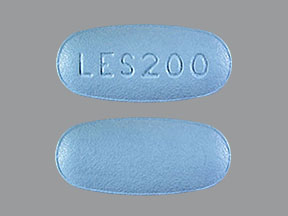Lesinurad Disease Interactions
There are 4 disease interactions with lesinurad.
Antihyperuricemic agents (applies to lesinurad) secondary hyperuricemia
Major Potential Hazard, Moderate plausibility. Applicable conditions: Tumor Lysis Syndrome, Lesch-Nyhan Syndrome, Organ Transplant
No studies with febuxostat or lesinurad have been conducted in patients with secondary hyperuricemia (including organ transplant recipients). The use of these drugs is contraindicated in patients where the uric acid formation is greatly increased, such as patients with malignant disease, tumor lysis syndrome or Lesch-Nyhan syndrome.
Lesinurad (applies to lesinurad) severe renal impairment
Major Potential Hazard, Moderate plausibility. Applicable conditions: Kidney Transplant, Renal Dysfunction
The use of lesinurad is contraindicated in patients with severe renal impairment, end stage renal disease, kidney transplant recipient and patients on dialysis.
Antihyperuricemic agents (applies to lesinurad) CV disease
Moderate Potential Hazard, Moderate plausibility. Applicable conditions: Cardiovascular Disease
Major adverse cardiovascular events (cardiovascular deaths, non- fatal myocardial infarctions and non- fatal strokes), were reported during clinical trials with some antihyperuricemic agents, such as febuxostat and lesinurad. Although a causal relationship has not been established, caution is advised when used in patients with cardiovascular disease. Monitoring for signs or symptoms of myocardial infarction or stroke is recommended.
Febuxostat/lesinurad (applies to lesinurad) hepatic impairment
Moderate Potential Hazard, Moderate plausibility. Applicable conditions: Liver Disease
No studies have been conducted in patients with severe hepatic impairment (Child-Pugh Class C), therefore caution should be exercised if using febuxostat or lesinurad on these patients. No dose adjustment is necessary in patients with mild or moderate hepatic impairment.
Switch to professional interaction data
Lesinurad drug interactions
There are 232 drug interactions with lesinurad.
More about lesinurad
- Check interactions
- Compare alternatives
- Reviews (2)
- Side effects
- Dosage information
- During pregnancy
- Drug class: antihyperuricemic agents
Related treatment guides
Drug Interaction Classification
| Highly clinically significant. Avoid combinations; the risk of the interaction outweighs the benefit. | |
| Moderately clinically significant. Usually avoid combinations; use it only under special circumstances. | |
| Minimally clinically significant. Minimize risk; assess risk and consider an alternative drug, take steps to circumvent the interaction risk and/or institute a monitoring plan. | |
| No interaction information available. |
See also:
Further information
Always consult your healthcare provider to ensure the information displayed on this page applies to your personal circumstances.


